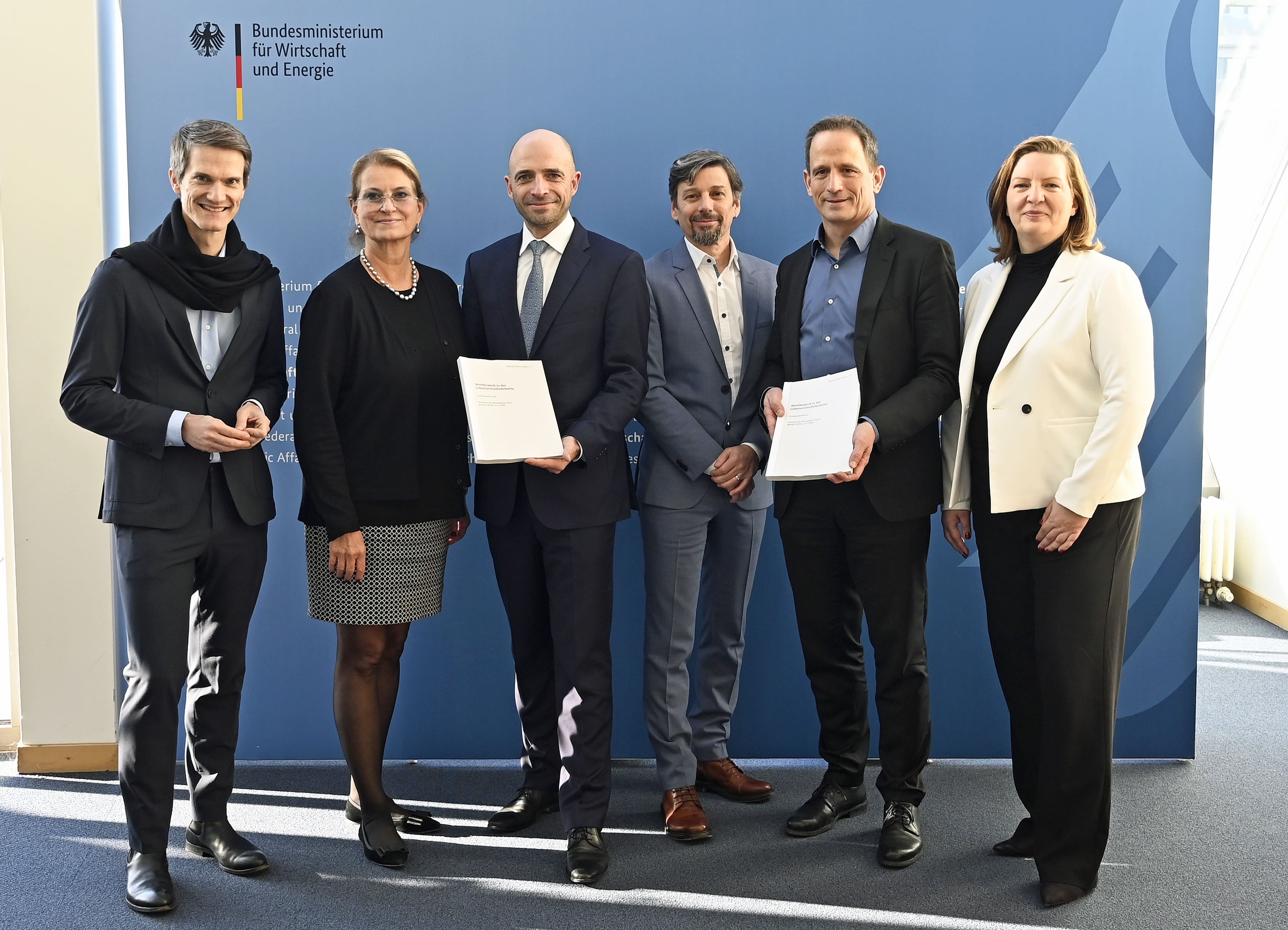Special Report of the Monopolies Commission, 21 November 2025
According to the Monopolies Commission, market concentration in food retail and parts of the food industry has increased significantly in recent years. ‘The power of food retailers and, in some cases, manufacturers has increased significantly at the expense of consumers, while agriculture is often exposed to global market risks,’ explains Tomaso Duso, Chairman of the Monopolies Commission. One reason for this are numerous mergers in the industry and the increasing expansion of retail activities to the manufacturing level. The Monopolies Commission, an independent advisory body to the German federal government, submitted its special report on competition in the food supply chain to the Federal Ministry of Economics and the Federal Ministry of Agriculture today. In the report, the Monopolies Commission conducted an in-depth analysis of market conditions. This was prompted by the farmers' protests in 2024 and the high food prices of recent years.

Closer Scrutiny of Mergers along the Entire Supply Chain
The Monopolies Commission recommends halting the ongoing concentration in the retail sec-tor and scrutinising future mergers more closely to assess their impact on the entire supply chain. As the already highly concentrated food retail sector increasingly expands its activities to upstream market stages, it is no longer sufficient to consider the impact on direct compet-itors at the retail level. Mergers over the past few years have resulted in around 85 per cent of the food retail sector being controlled by four large retail groups: Edeka, Rewe, Schwarz (Lidl and Kaufland) and Aldi. By expanding to the manufacturer level, retailers are strengthen-ing their negotiating position vis-à-vis manufacturers. For some products, they are entering into direct negotiations with the agricultural sector.
The Monopolies Commission also sees an urgent need for action at the manufacturer level. Manufacturers are defined as companies that process agricultural products.‘The ongoing concentration in food retailing must not continue at the manufacturer level,’ says Duso. Individual companies already have strong market power for some food products. The Monop-olies Commission recommends that the remaining competition be safeguarded at all costs and that further mergers be examined more closely.
In order to better understand the competitive effects of mergers, the Monopolies Commis-sion advocates systematically evaluating mergers retrospectively – using so-called ex-post evaluations. ‘Those who do not learn from the past will end up paying for it. Ex-post evaluations based on good data can show how mergers actually affect competition,’ emphasises Duso.
Effectively Countering Abuse of Power
From the Monopolies Commission's point of view, these changes in the market and power dynamics within the food supply chain require more effective control against abuse of power. ‘Although there are already laws against unfair trading practices, farmers often shy away from reporting and complaining to the competent authorities. We therefore need more consistent enforcement of existing rules,’ says Duso. Enforcement of the laws by the Federal Agency for Agriculture and Food and the Federal Cartel Office can be improved in this regard.
Increasing Concentration and Rising Food Prices
The Monopolies Commission's recommendations are based on various empirical analyses. These show that the average profit margins of retailers and manufacturers have been rising for over ten years – in parallel with the concentration processes at both levels. During the same period, consumer prices have risen more sharply than in many other EU countries. As a result, the gap between producer and consumer prices is widening.‘The high market concentration and rising food price mark-ups by manufacturers and retailers are worrying. Competition at these levels has weakened, while farm-ers, especially in the dairy and meat industries, have seen little long-term benefit,’ explains Duso. Although farms have been able to record significant profits in some financial years in the short term, they have hardly benefited from rising food prices in the long term.
Improving the Framework Conditions for Agriculture
‘Agricultural businesses are currently undergoing dramatic structural change that cannot be stopped. If businesses are to remain competitive in the long term, we must improve the framework conditions,’ says Duso. The Monopolies Commission sees the levers for improving the competitive position of agricul-ture primarily on the cost side. The ongoing trend towards more cost-efficient production and larger farm structures can better cushion risks. The bureaucratic burden on agriculture must be reduced. In addition, it makes sense to adjust agricultural subsidies: criteria should be based more on productivity, innovation and sustainability rather than land size. This would also enable smaller farms to strengthen their position.
Agricultural businesses are under pressure from many sides. On the one hand, they must meet increasing social demands for sustainability, animal welfare and environmental protec-tion. On the other hand, they have to deal with income risks: fluctuating weather and climate conditions as well as producer prices, which are determined by the world market, especially in the dairy and grain sectors. Crises, supply and demand shocks are reflected in this.
Click here to download:
Full Special Report (in German)

